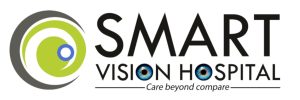We provide you the best Ophthalmology treatment in Chennai

What Are Low Vision Aids?
Low vision aids encompass a diverse range of tools and technologies specifically designed to assist individuals coping with visual impairments. These aids help maximize remaining vision and promote independence in daily activities, empowering individuals to lead more fulfilling lives.
Types of Low Vision Aids
Handheld Magnifiers Handheld magnifiers are compact tools that provide magnification for close-up reading and detailed examination of objects. They are ideal for activities like reading books, inspecting small items, and viewing fine print.
Stand Magnifiers Stand magnifiers offer a hands-free solution for reading and detailed tasks. They provide stable magnification, making them perfect for prolonged reading or hobbies that require both hands.
Pocket-Sized Magnifiers Pocket-sized magnifiers are portable and convenient, allowing users to carry them easily for quick access when needed. They are useful for reading menus, price tags, and other on-the-go tasks.
Bioptic Telescopes Bioptic telescopes are integrated into eyeglasses to enhance distance vision. They are beneficial for tasks such as recognizing distant signs, faces, and watching performances or sporting events.
Electronic Magnification Devices Electronic magnification devices, including video magnifiers, use cameras and screens to enlarge text and images. These devices offer customizable magnification levels and contrast settings to suit individual preferences and needs.
Talking Devices Talking devices, such as voice-activated apps and text-to-speech tools, provide audible information and enhance accessibility for individuals with visual impairments. These devices help with reading, navigation, and other daily tasks.
Benefits of Low Vision Aids
Enhanced Independence Low vision aids empower individuals to perform everyday activities independently, improving their quality of life and boosting self-reliance.
Improved Quality of Life By utilizing these aids, individuals with visual impairments can engage more fully in activities they enjoy, from reading and hobbies to social interactions and work.
Accessibility and Convenience Low vision aids are designed to be user-friendly and accessible, offering various options to meet different needs and preferences.
Who Can Benefit from Low Vision Aids?
Individuals with Visual Impairments Anyone experiencing vision loss that cannot be corrected with standard glasses, contact lenses, or surgery can benefit from low vision aids.
Elderly Individuals As vision often declines with age, low vision aids can help elderly individuals maintain their independence and continue to engage in daily activities.
Students and Professionals Low vision aids can assist students and professionals in academic and work settings, enhancing their ability to read, write, and perform tasks effectively.
The Low Vision Aid Experience
Comprehensive Vision Assessment Start with a thorough vision assessment to determine the most suitable low vision aids for your specific needs. Our specialists will evaluate your vision and recommend the best tools for you.
Personalized Solutions Based on your assessment, we will provide personalized low vision solutions tailored to your lifestyle and visual requirements.
Training and Support We offer training and support to ensure you can effectively use your low vision aids. Our team is here to help you adapt and make the most of your new tools.
Empower Your Vision with Smart Low Vision Aids!
Take the first step towards enhanced independence and a better quality of life with Smart Low Vision Aids. Schedule a consultation with our experts at Smart Vision Hospital to explore how our advanced tools can help you achieve clearer vision and greater autonomy.
See Clearly, Live Fully!
FAQs on Low Vision Aids
Low vision aids are devices which help us to have some useful vision to carry out our daily activities when the vision is very less.
We need LVA when we have low vision due causes such as age related macular degeneration,glaucoma,optic atrophy etc
The different types of LVA’s available are Magnifying spectacles,Stand magnifiers,Hand magnifiers,Telescopes,Video magnifiers etc
Low vision examination is required if a person has multiple eye problems like macular degeneration, cataract, diabetic retinopathy or glaucoma. Generally this examination should be done by a qualified optometrist or an ophthalmologist who has specialized in low vision. A low vision examination will take more time than a regular eye test.
Definitely not. Low vision is a state where there will be a large amount of “tunnel vision”. To put it in simple terms, it is a condition where the affected person will not be able to read the large letter “E” in the vision chart. But with the help of specially made low vision aids they will be able to read or see considerably better than their original state.
People who have visual impairments from birth can also be treated successfully with low vision devices. Apart from them people who have lost their vision due to a disease, stroke, congenital disorders and trauma can also benefit with the help of these devices.
Most of the people face this situation. Generally it takes some time for you to adjust with the new device. The lighting conditions in the clinic and your home will be different. So in order to have the best of experience you need to explore different lighting conditions and positioning.
Vision loss could have been for various reasons as mentioned above. Our suggestion would be to get an appointment with an Ophthalmologist and get your eyes tested. After the test Ophthalmologist will be able to give you a proper guidance on your vision

